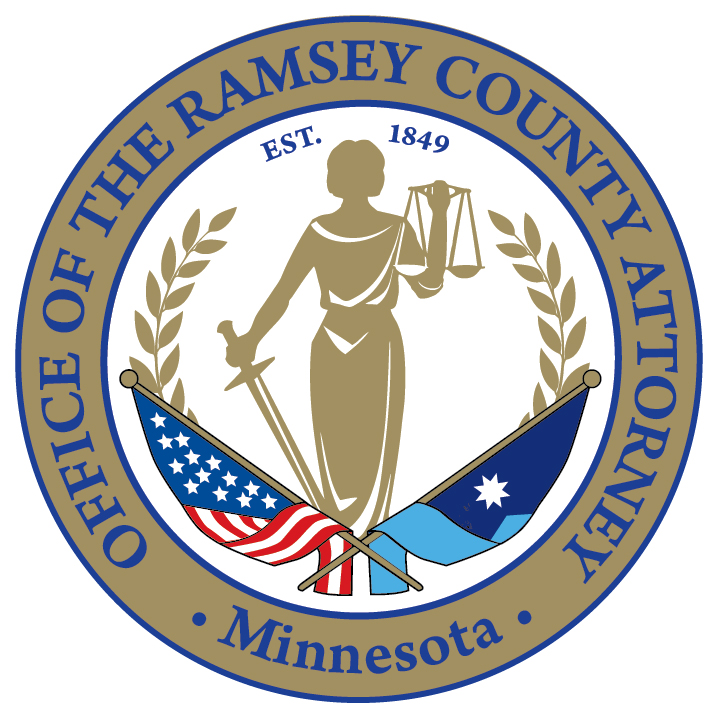Veterans Court
Launched in 2013, our Veterans Court is a joint effort designed to recognize that veterans may be struggling as a result of their service to our country and those collateral consequences may have contributed to their contact with the criminal justice system. We collaborate to identify eligible veterans who have been charged with a crime and connect them to the services they’ve earned to address any underlying problems they may be experiencing.
Our collective mission is to promote public safety through enhanced supervision and individual accountability. Together, we work to assist and support veterans by coordinating our response through collaboration with the Veterans Administration, community-based services and the criminal justice system.
Collaboration
The Ramsey County Veterans Court is a collaborative effort involving:
- Ramsey County Attorney's Office.
- Veterans Administration.
- Ramsey County Veterans Services.
- Ramsey County Community Corrections.
- Saint Paul City Attorney's Office.
- Ramsey County Public Defender's Office.
- Project Remand.
- Ramsey County Community Human Services.
- Second Judicial District.
- Other community partners.
Veterans Court purpose
- Protect public safety.
- Protect veterans and their families.
- Reduce criminal recidivism.
- Provide treatment and supervision to ensure sobriety and adequate health care.
- Improve access to VA benefits and medical care.
- Improve access to local resources to ensure adequate housing, employment, education and stability.
Eligibility
- Offenders charged with non-violent misdemeanor and gross misdemeanor offenses or felony offenses. Domestic violence related cases may be accepted by the St. Paul City Attorney's Office on a case-by-case basis.
- Must have served in the U.S. Armed Forces.
- Have a treatable behavioral, mental, or chemical h.ealth problem.
- Be at least 18 years old.
- Reside in Ramsey County.
- Have committed a qualifying offense in Ramsey County.
- Have voluntarily agreed to enter the Veterans Court Track.
Entry
Depending on the level of the offense and the participant's criminal history, the participant will be admitted to the program through one of the following dispositional paths:
- Path 1: Pre-charge or diversion.
- Path 2: Deferred prosecution, in which the defendant makes an admission of guilt, but the plea is not formally accepted and upon successful completion of the Veterans Court program, charges will be dismissed. If the defendant is unwilling or unable to complete the program, the plea may be accepted and a sentence will follow.
- Path 3: Post-adjudication in which a guilty plea is entered, the person is sentenced and Veterans Court Track is a condition of probation.
- Path 4: Probation violation, for probationers facing a revocation hearing with potential execution of jail or prison sentence due to continued substance abuse or lack of cooperation.
Length
The minimum program length for misdemeanors is nine months and the minimum length for gross misdemeanors and felonies is one year.
Treatment and Supportive Services
- Participants who are eligible for VA Health Care will be connected to treatment to address mental health (e.g. post traumatic stress disorder), chemical dependency, or both.
- Participants who are ineligible for VA Health Care, or who choose not to use their VA benefits, will receive their treatment through community-based treatment organizations.
- All identified veterans, regardless of VA eligibility or whether they are accepted into VCT, will be referred to community veteran supportive services to address housing, employment, education, child care, civil legal needs, medical, dental, etc.
Graduation requirements
To graduate, the participant must have successfully completed all of the program requirements, including:
- An aftercare plan.
- Minimum period of continued sobriety.
- High school diploma or GED.
- Employment or enrollment in school.
- Be in a recovery support group
- Live in a sober, stable residence.
- Pay all program fees and restitution, or have a judgment entered.
Participants may be terminated from the program for failure to comply with program requirements after all attempts have been made to improve the attendance and motivation without success. Termination may also occur if the client commits a drug sales or violent offense while in the program; is found to be in possession of a weapon; or is on warrant status for more than 60 days.
Mentor program
All participants will be assigned a volunteer veteran mentor. The role of the mentor is to help guide, coach, advocate and support participants as they progress through the program.
This will include:
- Listening to the participant's concerns.
- Making general suggestions.
- Assisting in determining where his/her needs may lie, and acting as a support for the participant at a time when she or he may feel alone in a way that only another veteran can understand.
Information on becoming a volunteer mentor through Veterans Services or call: 651-266-2545 or email: AskVeteransService.
